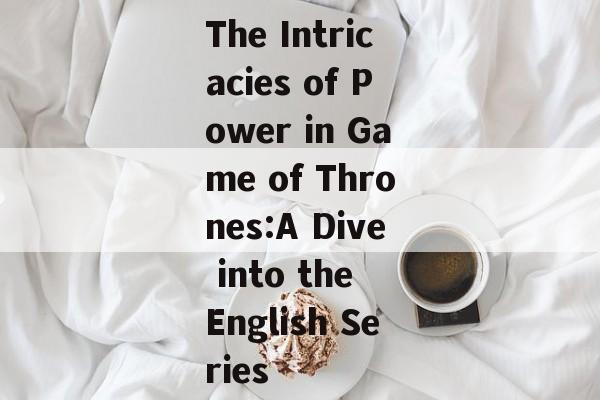The Intricacies of Power in Game of Thrones:A Dive into the English Series
The English series "Game of Thrones," based on George R.R. Martin's novel series "A Song of Ice and Fire," has captivated audiences worldwide with its intricate plot, complex characters, and the relentless pursuit of power. The series is a masterclass in the game of thrones, where power is not just a political or military asset but a psychological and emotional pursuit. This article delves into the various facets of power in "Game of Thrones," examining how it shapes the characters and the world they inhabit.
The Ladder of Power: The Political Chess Game
At its core, "Game of Thrones" is a political drama, and power is the central theme. The series opens with a family tree that outlines the various noble houses vying for control of the Iron Throne. The political landscape is a chessboard where characters must maneuver to gain the upper hand. Power in this context is a ladder that each character climbs, often at the expense of others.
King Robert Baratheon's ascension to the throne is a testament to the importance of power. Robert, a warrior king, seized the throne through force, but his reign is characterized by a lack of political acumen. His sons, particularly Joffrey, learn from their father's mistakes and seek to consolidate their power through cunning and deceit. The political games played by characters like Cersei Lannister, Tyrion Lannister, and Sansa Stark highlight the complexity of power dynamics in the series.
The Iron Throne: The Symbol of Power
The Iron Throne, the seat of power in Westeros, is a physical manifestation of the series' central theme. It is a massive, imposing throne crafted from the swords of fallen enemies, symbolizing the bloodshed and suffering required to attain power. The throne itself is a metaphor for the cost of power and the lengths to which characters will go to claim it.
Throughout the series, characters vie for control of the Iron Throne, often leading to betrayal, war, and death. The throne becomes a central objective, driving the narrative forward and forcing characters to make difficult choices. The pursuit of the Iron Throne is not just a quest for political power but a quest for self-validation and a sense of belonging.
Power as a Psychological Pursuit
"Game of Thrones" explores power not just as a political and military pursuit but as a psychological one. Characters like Cersei Lannister and Tyrion Lannister embody the psychological toll of power. Cersei's grip on power is so tight that she is willing to sacrifice her children to maintain it. Tyrion, on the other hand, uses his intellect and wit to navigate the political landscape, but his power is often an illusion, as he is constantly underestimated by those around him.
The psychological aspect of power is also evident in the characters' personal relationships. Jon Snow's journey from a Stark to a Targaryen to a Night's Watchman reflects his struggle with identity and power. Daenerys Targaryen's rise to power is marked by her transformation from a princess to a queen, and her quest for power is intertwined with her desire for love and acceptance.
The Game of Thrones: A Quest for Control
The "Game of Thrones" is a game that everyone is playing, and the stakes are incredibly high. It is a game of survival, where the rules are constantly changing, and the consequences of losing are dire. Power in the series is not just about winning; it is about controlling the narrative, shaping the future, and defining one's legacy.
The series' portrayal of power is not black and white. Characters like Arya Stark and Brienne of Tarth challenge traditional notions of power, demonstrating that strength and resilience can be powerful tools in the game of thrones. Arya's journey from a sheltered princess to a fearsome assassin is a testament to the power of determination and resourcefulness.
The Price of Power
Ultimately, "Game of Thrones" is a cautionary tale about the price of power. The series shows that power is a heavy burden, one that can corrupt and destroy. Characters like Eddard Stark and Robb Stark pay the ultimate price for their idealism and belief in the nobility of their cause. The series leaves no doubt that power is a dangerous game, and the cost of playing it can be immense.

In conclusion, "Game of Thrones" is a rich tapestry of power, a series that explores the various dimensions of this complex concept. From the political to the psychological, from the personal to the global, the series delves into the essence of power and its impact on individuals and societies. As the characters navigate the treacherous landscape of Westeros, they remind us that power is not just a goal but a journey, one filled with moral dilemmas, personal growth, and the eternal quest for control.
相关文章

最新留言